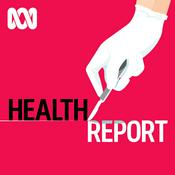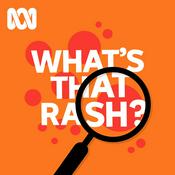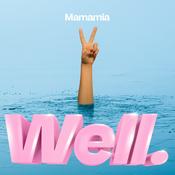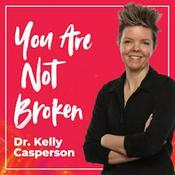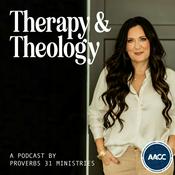22 episodes
- What to do when illness hits and the Doctor office is closed
Kids getting sick over Christmas feels almost guaranteed, and it always seems to happen when clinics are shut, everyone’s travelling, or you’re meant to be at lunch in 20 minutes. In this episode, Penny and Sarah walk you through how to stay calm, confident and prepared when illness strikes at the least convenient time.
We cover:
▶︎ Why kids get sick so often over Christmas
Travel, crowds, heat, late nights, disrupted routines and what this means for your child’s immune system.
▶︎ Your holiday illness action plan
What’s normal, what needs monitoring, and when it’s time to escalate. Clear steps to help you make decisions without second-guessing yourself.
▶︎ The “Summer Sick Kit” essentials
What to keep on hand to avoid last-minute stress, including practical tools, medications and comfort items.
▶︎ How and where to get help
Who to contact, what services are open, and how to get support when your usual GP isn’t available.
Additional Resources:
Learn more about managing childhood illness at Sick Happens
Find paediatric first aid training at Paeds Education
Kids collage idea Shana Blakely
Disclaimer
The information shared in this podcast is intended for educational and informational purposes only. It is not a substitute for professional medical advice, diagnosis, or treatment. Always seek the guidance of your healthcare provider with any questions you have regarding your child's health. Never disregard professional medical advice or delay in seeking it because of something you’ve heard on this podcast. - Talking to children about traumatic events is one of the hardest parts of parenting *especially* when the news is everywhere and details feel overwhelming.
In this bonus mini-episode of Prepared, Not Scared, Sarah is joined by child psychologist Deirdre Brandner to explore how to support children after distressing events, without frightening them or giving more information than they need.
This episode was recorded in response to recent events in Australia at Bondi Beach and is designed to help parents navigate tough conversations with calm, clarity and care.
In this episode, we unpack:
▶︎ Why children don’t need to witness an event to be affected
▶︎ How to start the conversation using age-appropriate language
▶︎ What to say (and what not to say) when children have big feelings
▶︎ Why routines, reassurance and predictability are so important
▶︎ How to keep communication open without over-exposing children to distressing information
You don’t need the perfect words.
You just need to be calm, honest and available.
A gentle, practical guide for parents wanting to support their children through challenging times — while preserving emotional safety and a sense of normalcy.
Prepared, not scared.
24/7 Mental Health & Crisis Support
Lifeline
📞 13 11 14
24/7 crisis support for adults and parents feeling overwhelmed, anxious or distressed.
Beyond Blue
📞 1300 22 4636
Support for anxiety, stress and low mood, including guidance for supporting children.
Support for Children & Young People
Kids Helpline
📞 1800 55 1800
For children and young people aged 5–25 years.
Also offers webchat and email support.
Headspace / eheadspace
Mental health support for young people aged 12–25 years, available in centres and online. - Helping you navigate boundaries, crowds and big feelings this festive season
Christmas is joyful… but it can also be loud, busy, and full of pressure from well-meaning relatives. In this episode, Penny and Sarah walk you through the non-illness challenges parents face at this time of year, and how to handle them calmly and confidently.
▶︎ Boundaries around babies
Helpful ways to navigate cuddles, kisses, photos and “just pass them here!” moments.
▶︎ When relatives turn up sick
A non-medical, relationship-friendly approach to protecting your baby without creating conflict.
▶︎ Simple, effective scripts
Short phrases you can use when you’re put on the spot: no guilt, no over-explaining.
▶︎ Reducing overwhelm for kids
Practical strategies for managing noise, crowds, stimulation and family expectations.
Additional Resources:
Learn more about managing childhood illness at Sick Happens
Find paediatric first aid training at Paeds Education
Disclaimer
The information shared in this podcast is intended for educational and informational purposes only. It is not a substitute for professional medical advice, diagnosis, or treatment. Always seek the guidance of your healthcare provider with any questions you have regarding your child's health. Never disregard professional medical advice or delay in seeking it because of something you’ve heard on this podcast. - Tiny blisters, big disruption. In this episode of Prepared Not Scared, Paediatric Nurses Penny and Sarah explain what Hand, Foot and Mouth Disease (HFMD) really is, why it spreads so quickly, and how to care for kids (and yourself) when it hits.
With calm, practical advice, Penny and Sarah help you navigate the chaos of outbreaks with confidence, no panic, just preparation.
Key Topics Discussed:
▶︎ What Hand, Foot and Mouth Disease is and how it spreads
▶︎ Who it affects and why early childhood settings see it so often
▶︎ How to recognise symptoms and prevent dehydration
▶︎ When children need to stay home and when they can return
▶︎ Comfort care: hydration, pain relief, soft foods, rest
▶︎ Simple hygiene steps to reduce spread
▶︎ Supporting children and families during outbreaks
Additional Resources:
Learn more about managing childhood illness at Sick Happens
Find paediatric first aid training at Paeds Education
Disclaimer
The information shared in this podcast is intended for educational and informational purposes only. It is not a substitute for professional medical advice, diagnosis, or treatment. Always seek the guidance of your healthcare provider with any questions you have regarding your child's health. Never disregard professional medical advice or delay in seeking it because of something you’ve heard on this podcast. - Thunderstorm Asthma – When Weather Turns Dangerous
When a storm rolls in after a hot, windy, high-pollen day, it can do more than just bring rain. In this episode of Prepared Not Scared, Paediatric Nurses Penny and Sarah unpack thunderstorm asthma: how weather patterns can trigger serious breathing difficulties, and why awareness and preparation matter.
This episode walks you through practical prevention steps and clear action plans to keep families, schools, and communities safe during high-risk weather.
Key Topics Discussed:
▶︎ What thunderstorm asthma is and how it happens
▶︎ How storms turn pollen into dangerous airborne particles
▶︎ Who’s most at risk: including people with mild or undiagnosed asthma or hayfever
▶︎ Lessons from Melbourne’s 2016 thunderstorm asthma event
▶︎ How to stay informed with pollen and storm forecasts
▶︎ Why updated asthma action plans and inhalers are essential
▶︎ What to do if someone starts wheezing or has trouble breathing
Additional Resources:
Learn more about managing childhood illness at Sick Happens
Find paediatric first aid training at Paeds Education
Asthma First Aid
Australian Resuscitation Council First Aid for Asthma Guidelines
Disclaimer:
The information shared in this podcast is intended for educational and informational purposes only. It is not a substitute for professional medical advice, diagnosis, or treatment. Always seek the guidance of your healthcare provider with any questions you have regarding your child's health. Never disregard professional medical advice or delay in seeking it because of something you’ve heard on this podcast.
More Health & Wellness podcasts
Trending Health & Wellness podcasts
About Prepared Not Scared
Your calm in the chaos of childhood illness & injury
Podcast websiteListen to Prepared Not Scared, The Imperfects and many other podcasts from around the world with the radio.net app
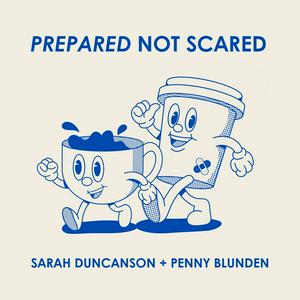
Get the free radio.net app
- Stations and podcasts to bookmark
- Stream via Wi-Fi or Bluetooth
- Supports Carplay & Android Auto
- Many other app features
Get the free radio.net app
- Stations and podcasts to bookmark
- Stream via Wi-Fi or Bluetooth
- Supports Carplay & Android Auto
- Many other app features


Prepared Not Scared
Scan code,
download the app,
start listening.
download the app,
start listening.





